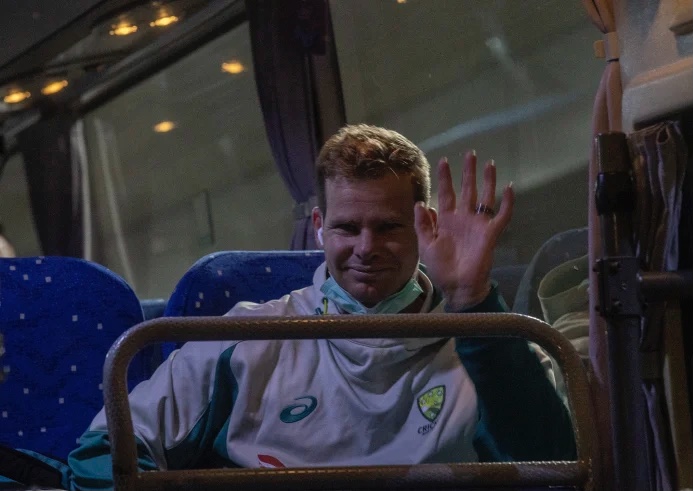
Sitting in his office behind the Sinhalese Sports Club ground – the Lord’s of Sri Lanka -Mohan De Silva has the television over his desk tuned to the ABC’s overseas service. On this day, it reports that Anthony Albanese and Labor have just secured a majority in Australia’s lower house.
The Sri Lanka Cricket secretary doesn’t need the TV news to tell him the state of affairs in his own island nation.
The scenes are the same around Sri Lanka, which has also been plagued by long blackouts and where a serious food crisis has emerged as prices have soared and the production of rice has fallen.
It is into this economic meltdown the Australian team arrived in Colombo this week for their first tour here since 2016, a six-week jaunt taking in Twenty20 and one-day international series and a two-Test contest in Galle.
Players raised concerns about the ethics of the trip, discussing whether it was appropriate to be strutting their stuff in Sri Lankan stadiums in the current environment. They have been assured, though, by De Silva that the tour “helps the country in this hour of need”.
“We will actually generate about $US2.5 million ($3.5m),” he said, referring to broadcast rights deals and other revenue streams attached to the games.
“From three-wheel drivers to suppliers of food, all these stakeholders down the line will have an opportunity to earn something for one and a half months. So, economically this will have a significant effect on this country.
“The other thing is we’re sending a strong message to the world that Sri Lanka is safe. Millions of people will be watching the telecast during the matches.”
Australian apprehension was also assuaged by the knowledge their visit was not just topping up cricket coffers, with Sri Lanka Cricket announcing last week that it would donate $3.5m to hospitals to help them acquire essential medicines.
Australia are in the country three weeks after a day of violence in which nine people were killed and dozens of MPs’ houses were torched in retaliation for an attack by on anti-government demonstrators by loyalists of the ruling Rajapaksa family.
Police also fired tear gas and water cannons at protesters who were marching towards the official residence of President Gotabaya Rajapaksa last weekend, demanding his resignation. The unrest factored in pre-tour talks with Cricket Australia, as has Sri Lanka’s fuel shortage.
De Silva said there had been an effort to amend the schedule, by shifting the Test matches in front of the two white-ball series, so floodlights at venues would not have to be turned on for games as soon as next Tuesday, when the first T20 is held at the R Premadasa Stadium in Colombo.
“Because of the fuel problem we had a discussion with Cricket Australia and were trying to persuade them to start with the two Tests because the two Tests matches don’t need any [lights],” he said.
“But unfortunately … Australia has three teams, as you know, and they had already started preparations for white-ball cricket. We didn’t want to push too much because of the fact the Australians have been very generous in their thinking.”
The result is that the three T20s and five ODIs being played over the next three weeks will still be night and day-night matches respectively, with cricket grounds lit up for three or four hours per evening as many people line up behind the wheel overnight at petrol stations.
The lighting for the games will not tap into the under-strain electricity grid, though, according to De Silva. Instead, generators from the state-owned Ceylon Electricity Board have been hired, he said. While they run on fuel which could be used elsewhere, there stood to be a financial blow on television rights fees if night matches were changed to the daytime and not shown in prime time in India.
De Silva also believes the tour holds value amid the present turmoil in that it may allow a population under extreme pressure to “take their minds away from all the hardships that they’re faced with”, however momentarily.
It is a desire shared by Australian limited-overs captain Aaron Finch, who hopes “we can bring some joy and some entertainment to Sri Lanka”.
“This is the first time we’ve been here since 2016, which is a long gap between tours, and it’s such a special place to tour, the hospitality that you get here,” Finch said on Friday. “The friendliness of everyone, their love of the game is unbelievable.”
No longer contained to their hotels and the cricket grounds because of the virus, the Australians are also hoping to lift spirits with several appearances arranged by the Australian high commission in Colombo.
“I remember in the last tour here we up in Kandy we had an unbelievable experience with underprivileged kids,” Finch said “And that was something that you live with forever. So, hopefully we can get back to that as soon as we can and we can have a really positive impact here.” (The Sidney Morning Herald)
